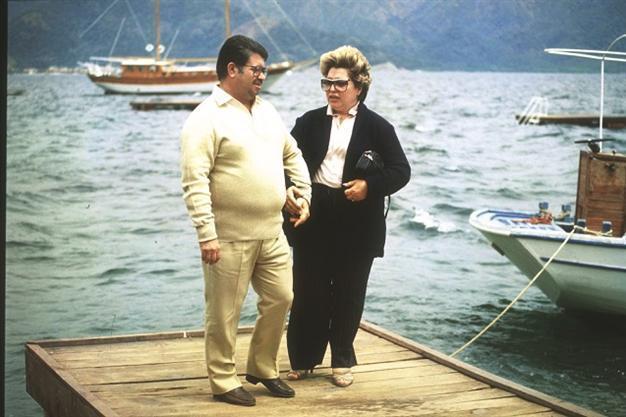Case of ex-president’s death heats up secret witness debate
Mesut Hasan Benli - Oya Armutçu - Nurettin Kurt
 The case regarding the death of Turkey’s 8th President Turgut Özal has rekindled the debate over the role of wiretappings and anonymous witnesses in the justice system, after it was revealed that Özal's family members were wiretapped by prosecutors as suspects.
The case regarding the death of Turkey’s 8th President Turgut Özal has rekindled the debate over the role of wiretappings and anonymous witnesses in the justice system, after it was revealed that Özal's family members were wiretapped by prosecutors as suspects.Özal was elected prime minister in 1983 in the aftermath of the Sept. 12, 1980 military coup and later became the country’s eighth president in 1989. Born in the eastern province of Malatya, Özal was partly of Kurdish origin and his policies led to a huge liberalization of the Turkish economy. However, his tenure in office was cut short when he died on April 17, 1993.
Doubts about the cause of Özal’s death, however, were not initially addressed because no autopsy was performed following his passing. His widow, Semra Özal, and his son, Ahmet Özal, both claim he was assassinated by heavy metal poisoning.
In 2012, prosecutors reopened the case after a State Audit Board (DDK) report ruled Özal’s death “suspicious” and said it should be investigated. His body was then exhumed for samples to be collected for the investigation. However, the Forensic Medicine Institute (ATK) ultimately concluded there were no clinical or laboratory findings to suggest that Özal had been poisoned or that there was radioactive material present in his body.
Although a court ruled in March that there is a lack of grounds for legal action in the case, the verdict provided a basis for prosecutors to wiretap the suspects by stressing that the investigation was confidential.
Prosecutors also wiretapped Özal’s family members, based on a judgment that relied on a mysterious secret witness. İlker Çınar, an ex-corporal who was dismissed from the Turkish Army due to indiscipline, had first appeared as a secret witness in a case regarding the murder of three Christian missionaries in 2007, accusing Brigadier General Levent Ersöz. Çınar accused the same officer in 2013 while secretly testifying in the Özal investigation, claiming Ersöz had poisoned Özal with radioactive medicine.
Despite the fact that the investigation into 54 suspects was ultimately dismissed, prosecutors wiretapped almost everyone around Özal. Devrim Güngör, a professor on penal law, told Hürriyet that those whose privacy was violated through the wiretaps would now be eligible to sue the Justice Ministry and demand compensation.
“The forensics report didn’t have any hint of poisoning. An investigation shouldn’t have been conducted without reasonable doubt or evidence,” Güngör said. “This investigation was illegal.”
Along with the late president’s wife, his daughter Zeynep Özal, his daughter-in-law Elvan Özal and his son Ahmet Özal were all wiretapped as suspects after prosecutors cited their “suspicious” phone calls following the death.
“You could just go crazy when you hear about such absurdities. These people are crazy. I’ll take legal action,” Ahmet Özal said in a statement to Hürriyet.
“My husband died 21 years ago. The people who are doing this kill me every day,” Semra Özal added.
















